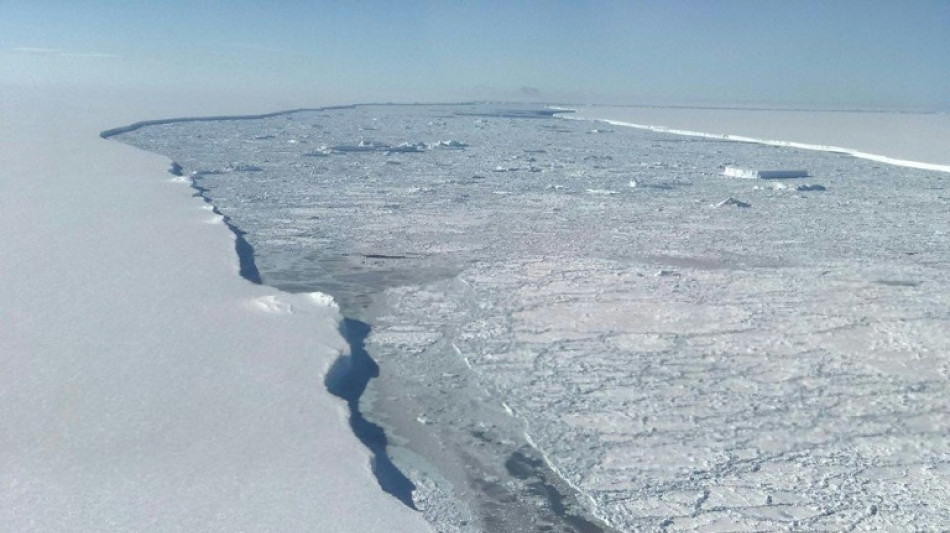
-
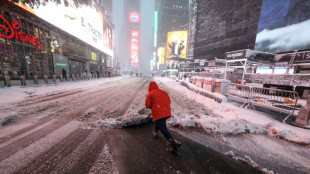 Snowstorm blankets US northeast as New York sees travel ban
Snowstorm blankets US northeast as New York sees travel ban
-
Healthcare crisis looms over Greenland's isolated villages
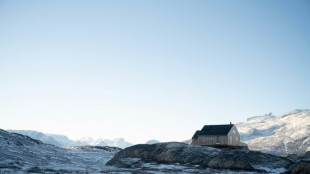
-
 Hodgkinson says breaking 800m record would put her among athletics' greatest
Hodgkinson says breaking 800m record would put her among athletics' greatest
-
Two Russian security personnel were on board France-seized tanker: sources
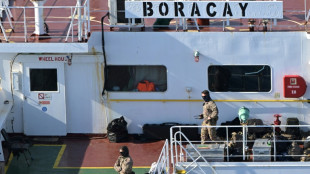
-
 EU puts US trade deal on ice after Supreme Court ruling
EU puts US trade deal on ice after Supreme Court ruling
-
Hetmyer blasts 85 as West Indies pile up 254-6 against Zimbabwe

-
 Canada PM heads to Asia seeking new trade partners as US ties fray
Canada PM heads to Asia seeking new trade partners as US ties fray
-
South Africa accepts Trump's new US ambassador

-
 Iraq's Maliki defends PM candidacy, seeks to reassure US
Iraq's Maliki defends PM candidacy, seeks to reassure US
-
UEFA suspend Benfica's Prestianni after alleged racist abuse

-
 Jetten sworn in as youngest-ever Dutch PM
Jetten sworn in as youngest-ever Dutch PM
-
Italy's Enel to invest 20bn euros in renewables by 2028
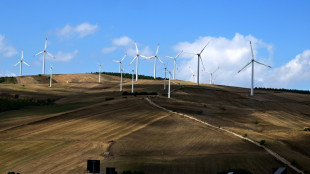
-
 BBC apologises for 'involuntary' Tourette's racial slur during BAFTA awards
BBC apologises for 'involuntary' Tourette's racial slur during BAFTA awards
-
Kristen Bell returns to host glitzy Actor Awards in Hollywood

-
 Iran says would respond 'ferociously' to any US attack
Iran says would respond 'ferociously' to any US attack
-
Venezuelan foreign minister demands 'immediate release' of Maduro

-
 Dane Vingegaard to start season at Paris-Nice in March
Dane Vingegaard to start season at Paris-Nice in March
-
Australia PM backs removing UK's Andrew from line of succession
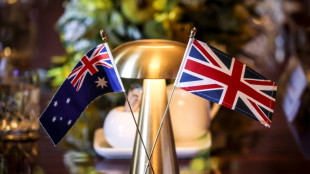
-
 Where do Ukraine and Russia stand after four years of war?
Where do Ukraine and Russia stand after four years of war?
-
Police investigating racist abuse of Premier League quartet

-
 Fiji to start Nations Championship at 'home' to Wales in Cardiff
Fiji to start Nations Championship at 'home' to Wales in Cardiff
-
EU lawmakers to put US trade deal on hold after Supreme Court ruling

-
 Rubio to attend Caribbean summit as US presses Venezuela, Cuba
Rubio to attend Caribbean summit as US presses Venezuela, Cuba
-
'Ugly' England aim to spin their way to T20 World Cup semi-finals

-
 Nigeria paid Boko Haram ransom for kidnapped pupils: intel sources
Nigeria paid Boko Haram ransom for kidnapped pupils: intel sources
-
Tudor says Tottenham can still beat the drop despite Arsenal loss

-
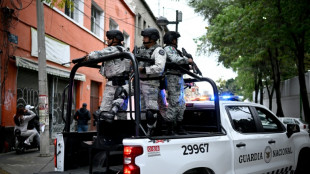 Violence sweeps Mexico after most-wanted drug cartel leader killed
Violence sweeps Mexico after most-wanted drug cartel leader killed
-
France giant Meafou capable of being 'world's best' lock

-
 Stocks diverge, dollar down over Trump tariffs uncertainty
Stocks diverge, dollar down over Trump tariffs uncertainty
-
World champions South Africa announce eight home Tests for 2026/27

-
 Liverpool boss Slot encouraged by Mac Allister's return to form
Liverpool boss Slot encouraged by Mac Allister's return to form
-
India replaces British architect statue with independence hero
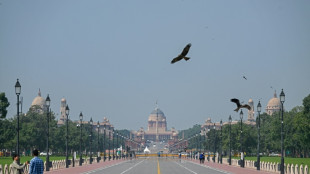
-
 Pakistan warn England's flaky batting to expect a trial by spin
Pakistan warn England's flaky batting to expect a trial by spin
-
Philippines' Duterte authorised murders, ICC told as hearings open

-
 Iran says would respond 'ferociously' to any US attack, even limited strikes
Iran says would respond 'ferociously' to any US attack, even limited strikes
-
New Dutch government sworn in under centrist Jetten

-
 What the future holds for the CJNG cartel after leader killed
What the future holds for the CJNG cartel after leader killed
-
ICC kicks off pre-trial hearing over Philippines' Duterte

-
 UN chief decries global rise of 'rule of force'
UN chief decries global rise of 'rule of force'
-
Nemesio Oseguera, the brutal Mexican drug lord known as 'El Mencho'
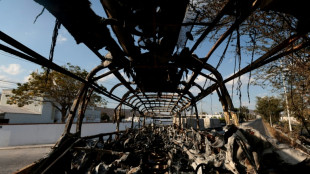
-
 Senegal's Sahad, radiant champion of 'musical pan-Africanism'
Senegal's Sahad, radiant champion of 'musical pan-Africanism'
-
New York orders citywide travel ban as major storm hits US
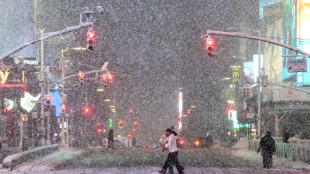
-
 'Considered a traitor': Life of an anti-war Ukrainian in Russia
'Considered a traitor': Life of an anti-war Ukrainian in Russia
-
South Korea and Brazil sign deals on K-beauty, trade

-
 Zimbabwe farmers seek US help over long-promised payouts
Zimbabwe farmers seek US help over long-promised payouts
-
Hong Kong appeals court upholds jailing of 12 democracy campaigners

-
 India battle for World Cup survival after 'messing up on grand scale'
India battle for World Cup survival after 'messing up on grand scale'
-
'I will go': Bengalis in Pakistan hope for family reunions

-
 North Korea touts nuclear advances as Kim re-chosen to lead ruling party
North Korea touts nuclear advances as Kim re-chosen to lead ruling party
-
South Korea protests 'Victory' banner hung from Russian embassy


Monster iceberg released 'billions of tonnes' of fresh water into ocean
A giant iceberg that detached from Antarctica in 2017 released the equivalent of 61 million Olympic-sized swimming pools of fresh water as it melted, according to research published Thursday, raising questions over the impact on the marine ecosystem.
The monstrous iceberg was twice the size of Luxembourg when it separated from the Larsen ice shelf, which has warmed faster than any other part of Earth's southernmost continent.
At 5,719 square kilometres (2,200 square miles) it was the biggest iceberg on Earth when it formed and the sixth-largest on record, according to the British Antarctic Survey.
For two years, the trillion-tonne giant known as A-68, drifted close to home in the cold waters of the Weddell Sea before travelling northwards and menacing the British island of South Georgia, some 4,000 kilometres (2,500 miles) from its starting point.
The iceberg, by then known as A-68a after a piece snapped off, came dangerously close to the island in late 2020, raising fears that it would become stuck on the seabed, block ocean currents and obstruct the passage of thousands of penguins and seals.
But the new study found that while it did briefly graze the seabed, the iceberg melted quickly once in the warmer region around South Georgia and had already lost a significant amount of its bulk by the time it reached shallower waters.
Researchers who tracked its journey via satellites calculated that from late 2020 until it melted away in 2021, A-68 released an estimated total of 152 billion tonnes of nutrient-rich fresh water into the sea.
That is equivalent to 20 times the water in Scotland's Loch Ness, or 61 million Olympic-sized swimming pools, said the BAS in a press release, adding it was "a disturbance that could have a profound impact on the island's marine habitat".
"This is a huge amount of melt water," said Anne Braakmann-Folgmann, a researcher at the Centre for Polar Observation and Modelling (CPOM), who led the research published in the journal Remote Sensing of Environment.
"The next thing we want to learn is whether it had a positive or negative impact on the ecosystem" around South Georgia, she said.
- 'Classic' route -
Researchers said the cold fresh meltwater and nutrients released as icebergs melt can influence local ocean circulation and spark biological production.
Braakmann-Folgmann said A-68 had taken a "classic" route for icebergs in the region, adding that further research would look to learn more about how these icebergs are affecting the polar oceans.
Icebergs form when hunks of ice break off from ice shelves or glaciers and begin to float in open water.
Their formation is part of a natural process, although one which can be accelerated by warming air and ocean temperatures due to human-caused climate change.
Earth's average surface temperature has gone up by one degree Celsius since the 19th century, enough to increase the intensity of droughts, heat waves and tropical cyclones.
But the air over Antarctica has warmed more than twice that much.
Ice sheets atop Greenland and West Antarctic hold enough frozen water to lift oceans a dozen metres (40 feet), drowning cities and redrawing the planet's coastlines.
Icebergs are traditionally named after the Antarctic quadrant in which they were originally detected, then a sequential number.
If they break apart more letters are added to differentiate the fragments.
B.AbuZeid--SF-PST



